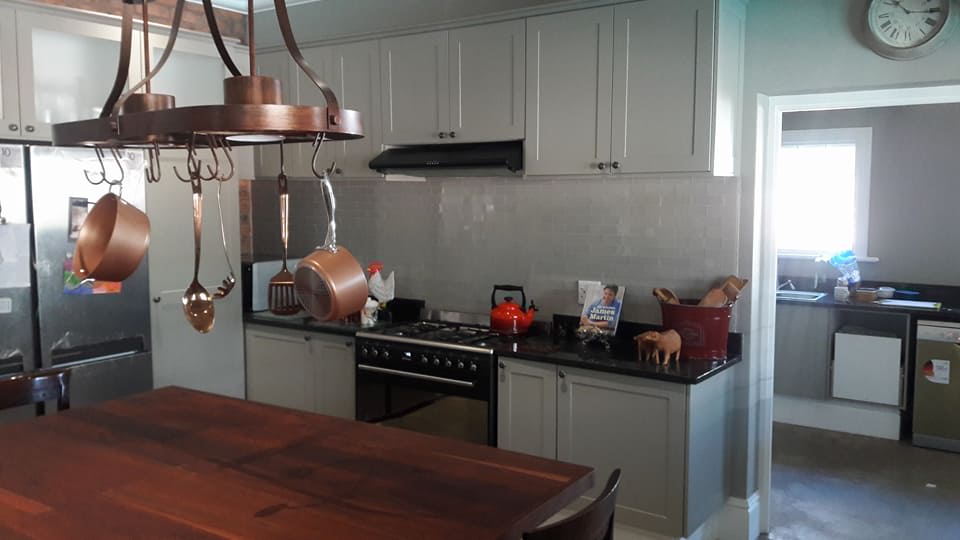If your quest for the perfect kitchen or bathroom aesthetic has led you to consider marble countertops, you're likely aware of their reputation as a symbol of elegance and luxury. With their unique veining and diverse color palette, it's no wonder they've captured your attention. But, like any significant home investment, it's essential to delve deeper than surface-level allure.
Navigating the world of interior design can be fraught with complexities, one of which is deciding on the right countertop material. You might be intrigued by the timeless beauty of marble, yet hesitant due to potential maintenance demands. It's a familiar dilemma faced by many homeowners. Drawing from a wealth of interior design experience, we recognize these challenges and are here to guide you through them.
As we embark on this exploration of marble countertops, we'll weigh their pros and cons, focusing on the practical as well as the aesthetic aspects. This way, you can make a fully informed decision that suits your specific needs, preferences, and lifestyle. With a firm grasp of this intricate subject, you'll soon be able to transform your kitchen or bathroom into a space that truly reflects your style.
So, let's dive in to unearth the true essence of this classic material.
Advantages of Marble Countertops
Marble countertops offer unparalleled elegance and sophistication, making them a prized choice for homeowners seeking a luxurious and timeless kitchen or bathroom upgrade. The natural beauty of marble, with its unique veining and patterns, adds a touch of opulence to any space. Its cool surface is ideal for baking and cooking, making it a practical choice for kitchens. Beyond aesthetics and functionality, marble countertops have the potential to increase the value of a home, making it a worthwhile investment. With proper care and maintenance, marble countertops can last for generations, adding to their allure.
The timeless appeal of marble, a natural stone, brings a sense of luxury and grandeur to any kitchen. Its elegant look, derived from its natural composition, can elevate the ambiance of a room. However, it is important to note that marble countertops are relatively expensive compared to other options. Despite this, their longevity and the sophisticated aesthetic they provide make them a highly desirable choice for homeowners looking to create a sense of belonging and refinement in their living spaces.
Disadvantages of Marble Countertops
Marble countertops, while elegant and timeless, come with several disadvantages that should be carefully considered.
Staining and etching are common issues, as marble is more porous and susceptible to damage from acidic substances.
Additionally, the high maintenance requirements and costly repairs associated with marble countertops can be a significant drawback for homeowners seeking durability and ease of care in their kitchen surfaces.
Staining and Etching
Prone to staining and etching from acidic substances and demanding regular maintenance, marble countertops present significant challenges in preserving their pristine appearance. This natural stone requires meticulous care to maintain its luster and beauty. Here are some key considerations regarding staining and etching on marble countertops:
- Acidic liquids, such as lemon juice and vinegar, can cause etching and staining.
- Regular sealing, at least annually, is crucial to prevent substantial staining.
- Scratches can easily occur on marble countertops, leading to potential etching from prolonged exposure to acids.
- Careful handling and maintenance are essential to mitigate the risk of staining and etching and to preserve the countertop's elegance.
It's important to weigh these factors carefully when considering marble countertops, as they require ongoing attention to remain in optimal condition.
High Maintenance
High maintenance is a significant drawback associated with marble countertops, necessitating regular care and attention to preserve their pristine appearance and structural integrity.
Marble countertops are prone to staining, especially with acidic liquids, and require frequent sealing to prevent substantial damage. The soft nature of marble makes it susceptible to scratches and etching when exposed to acids for extended periods.
Additionally, the cost of installation is generally higher compared to other countertop options. Regular maintenance, including sealing and protection from chipping, is necessary to preserve the appearance of marble countertops.
It's important to note that marble develops a patina with age, which may not be suitable for those desiring a consistently pristine appearance. As such, if a countertop requiring less frequent attention is preferred, alternative surfaces should be considered.
Costly Repairs
When considering the disadvantages of marble countertops, it becomes evident that the susceptibility to scratching and etching from acidic substances can lead to costly and intricate repairs.
The following factors contribute to the costly nature of repairing marble countertops:
- Scratching: Marble is prone to scratches, which often necessitate professional repair to restore the surface to its original state.
- Etching: Damage from acidic substances can cause etching, requiring specialized restoration techniques to repair the affected areas.
- Sealing and maintenance: Regular sealing and maintenance are essential to prevent staining and mitigate the need for costly repairs.
- Chips and cracks: Repairing chips or cracks in marble countertops can be expensive and time-consuming, adding to the overall cost of upkeep.
Investing in marble countertops necessitates a consideration of potential costly repairs, making it important to weigh the pros and cons of this elegant yet high-maintenance natural stone option.
Cost Considerations for Marble Countertops
When considering the cost of marble countertops, it is essential to factor in both the initial cost of installation and the long-term maintenance expenses.
The price per square foot varies significantly depending on the type of marble chosen, with Carrara marble being the most affordable and Calacatta marble being the most expensive.
Additionally, the thickness, quality, and color of the marble will also impact the overall cost of the countertops.
Cost of Installation
The cost of installing marble countertops can vary significantly due to factors such as the type of marble chosen, its quality, color variations, and the desired thickness. Here are some cost considerations for marble countertops:
- Average Cost: Marble countertops typically cost around $60 per square foot on average.
- Least Expensive Option: Carrara marble is the most budget-friendly choice, costing approximately $40 per square foot.
- Most Expensive Option: Calacatta marble is the priciest option, averaging about $180 per square foot.
- Mid-Range Option: Statuario marble falls in the middle in terms of cost, with a price of around $50 per square foot.
When considering marble countertops for your kitchen or home improvement project, it's essential to factor in these cost variations and choose the option that best fits your budget and design preferences.
Long-Term Maintenance
Long-term maintenance costs for marble countertops can significantly impact the overall investment in this luxurious but high-maintenance countertop option. Due to its porous nature, marble countertops require regular sealing to prevent staining and maintain their appearance, resulting in annual or biannual maintenance expenses.
Additionally, the softness of marble makes it prone to scratches and chips, necessitating careful handling and potential repairs. Stains on marble countertops may require the use of a specific mixture to remove, further adding to the maintenance costs.
Furthermore, constant cleaning, periodic polishing, and protection from chipping are essential to prolong the lifespan of marble countertops. While this maintenance can be time-consuming and costly, the elegance and potential to increase your home's value with marble countertops may outweigh these long-term considerations.
Maintenance Tips for Marble Countertops
To maintain the luster and longevity of marble countertops, a crucial step is to seal the surface before or during installation to safeguard against potential stains. Here are some essential maintenance tips for marble countertops:
- Sealing: Apply a sealant to the surface of the marble to create a protective barrier against spills and stains, especially in high-traffic areas like the kitchen.
- Resealing: Regularly reseal the marble every year or as needed to maintain its shine and resistance, ensuring that it continues to repel liquids and remain resilient.
- Cleaning: Use only marble-approved cleansers to avoid damage and preserve the surface. Harsh chemicals can erode the natural stone, so it's important to use gentle, pH-neutral cleaners.
- Protection: Use cutting boards and hot pads to protect the surface from scratches and heat damage. This will prevent the countertop from being damaged by sharp utensils or hot pots and pans.
Design Options for Marble Countertops
When considering the design options for marble countertops, it is essential to integrate the maintenance tips previously discussed to ensure the longevity and aesthetic appeal of the chosen marble variety. Marble countertops offer a wide range of design options, with various colors such as white, black, pink, and green, providing a diverse palette for kitchen and bathroom designs. Different types of marble, including Carrara, Statuary, Calacatta, and Crema Marfil, offer unique veining patterns and color variations, catering to individual design preferences. The availability of diverse finishes, such as polished and honed, allows for customization according to specific design themes. Understanding marble veining and variations is crucial for selecting the right marble to complement specific design elements, ensuring a cohesive and visually appealing space. Incorporating marble countertops with quartz countertops or other types of natural stone can also create a striking contrast or cohesive design in kitchen or bathroom spaces.
| Type of Marble | Countertop Colors | Finish |
|---|---|---|
| Carrara | White | Polished |
| Statuary | Black | Honed |
| Calacatta | Pink | Polished |
| Crema Marfil | Cream | Honed |
Installation Process for Marble Countertops
With meticulous attention to detail and precision, the installation process for marble countertops demands professional expertise to ensure flawless integration into kitchen or bathroom spaces. The following steps outline the essential components of the installation process:
- Precise Measurements: Each marble slab is measured and cut to fit the specific dimensions of the kitchen or bathroom, ensuring a perfect fit.
- Professional Handling: Professional installation is recommended to handle the heavy marble slabs properly, ensuring careful transportation and placement to avoid damage.
- Skillful Sealing: The installation process includes sealing the marble to protect it from stains and etching, requiring expertise to achieve a durable and attractive finish.
- Detailed Finishing: Considerations for support, leveling, and edge finishing are essential to create a functional and visually appealing surface, adding to the overall value of the installation.
The installation process for marble countertops is a meticulous and skilled endeavor that, when done correctly, ensures the enhancement of the space's aesthetics and functionality. It is a crucial step in maximizing the benefits of this exquisite building material, adding to the resale value of the property while offering a variety of colors and the characteristic cool-to-the-touch surface.
Frequently Asked Questions
What Are the Pros and Cons of Marble Countertops?
Marble countertops present unmatched elegance and timeless style, but require regular sealing and maintenance to prevent staining. While they are generally more costly, their cool surface is ideal for baking. However, they are prone to scratching and etching.
Why Do People Get Marble Countertops?
Marble countertops are sought after for their durability, elegant aesthetics, and timeless appeal. Their heat resistance, unique veining patterns, and long lifespan make them a worthwhile investment, albeit requiring regular maintenance to uphold their pristine appearance.
Why Is Marble Not Great for Kitchen Counters?
Marble is not ideal for kitchen counters due to its susceptibility to staining issues, high maintenance requirements, limited heat resistance, costly investment, prone to scratching, and limited color options. It's not suitable for heavy use.
Why Do People Choose Marble?
Marble is chosen for its timeless aesthetics and the value it adds to a home. Despite requiring regular maintenance, its durability and heat resistance make it ideal for cooking. While it comes at a cost, the allure and value it brings are unmatched.
















